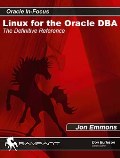Login
and Logout Files
At login or when switching users with su -, the shell executes a
series of commands from files known as login files.
Some shells, ( bash included) , also execute commands at logout.
These files typically contain variable definitions that control the
user environment, application behavior and command aliases, but they
may also contain commands that perform cleanup routines and other
tasks on the system.
Next to be covered in detail is the login behavior of the bash
shell. Different shells may use different file names, but the
overall steps are the same.
Bash Shell Login Behavior
The first file to be read and executed is /etc/profile.
This is the system wide configuration file and is always read by a
login shell if it exists. The /etc/profile file is typically
maintained by the system administrator and should only contain
settings and defaults applicable to every user on the system.
Next, bash goes looking for one of the following files in the
user's home directory:
- .bash_profile
- .bash_login
- .profile
The bash shellreads and
executes the first of these files that it finds, looking in the
order listed above. Once it has located and executed one of these
startup files from the home directory, all others are ignored.
If none of these files are available, the user only has settings
from the system wide /etc/profile file. If bash goes looking for
one of these files and it exists but is not readable, it reports the
error.
Since these files begin with a period (.), they are hidden by
default. If they need to be viewed in a directory listing, use the
-a option for the ls command. With these startup files, it is
important to remember that only the first one found is read. If,
for instance, there are both a .bash_profile and a .profile in the
home directory, the .bash_profile is read and executed and the
.profile ignored.
When a user is created on the Linux system, several baseline
files are created including .bash_profile and .bash_logout files.
These files are copied from the /etc/skel directory and provide a
baseline for the login and logout files. The copy of these files in
a user's home directory can be edited to change the default
behaviors.
Any of the login files may call other login files. For example,
the default .bash_profile has this entry to call the .bashrc file.
Here is a partial listing of the .bash_profile file:
# Get the aliases
and functions
if [ -f ~/.bashrc ]; then
. ~/.bashrc
fi
This section uses an if statement to determine if the file .bashrc
exists in the user's home directory. If it does, it is executed as
part of the current session as indicated by the period before ~/.bashrc.
This allows parts of the login files with different functions to be
separated out into different files.
|
|
 |
|
Get the Complete Details on
Linux System Management for Oracle DBAs
The landmark book
"Linux for the Oracle DBA: The
Definitive Reference"
provides comprehensive yet specific
knowledge on administering Oracle on Linux. A
must-have reference for every DBA running or planning to run
Oracle on a Linux platform.
Buy it
for 30% off directly from the publisher.
|
|
|
| |
|
Burleson is the American Team

Note:
This Oracle
documentation was created as a support and Oracle training reference for use by our
DBA performance tuning consulting professionals.
Feel free to ask questions on our
Oracle forum.
Verify
experience!
Anyone
considering using the services of an Oracle support expert should
independently investigate their credentials and experience, and not rely on
advertisements and self-proclaimed expertise. All legitimate Oracle experts
publish
their Oracle
qualifications.
Errata?
Oracle technology is changing and we
strive to update our BC Oracle support information. If you find an error
or have a suggestion for improving our content, we would appreciate your
feedback. Just
e-mail:
 and include the URL for the page. and include the URL for the page.


Copyright © 1996 - 2020
All rights reserved by
Burleson
Oracle ®
is the registered trademark of Oracle Corporation.
|
|
